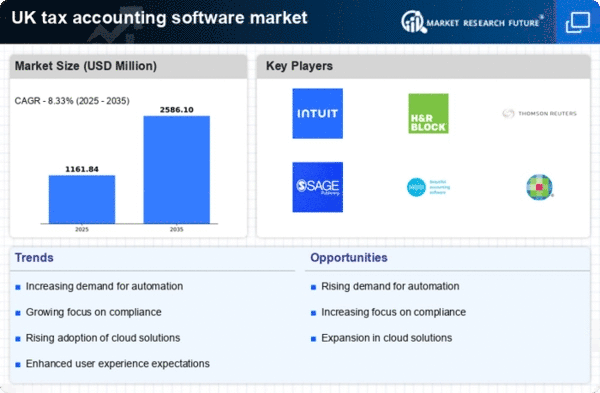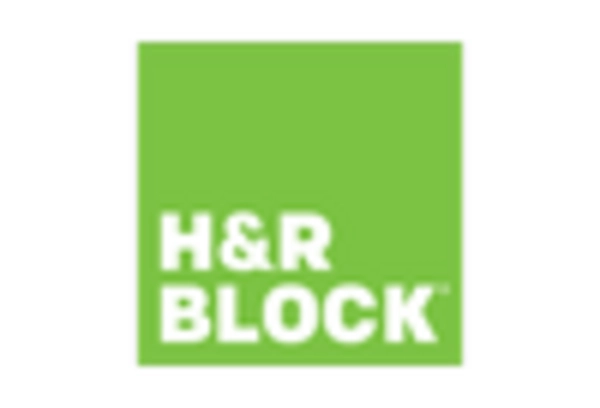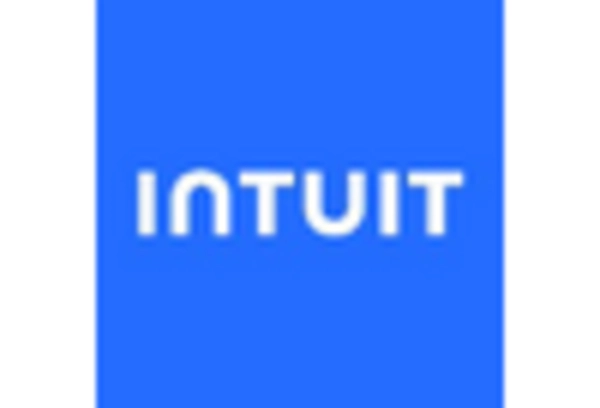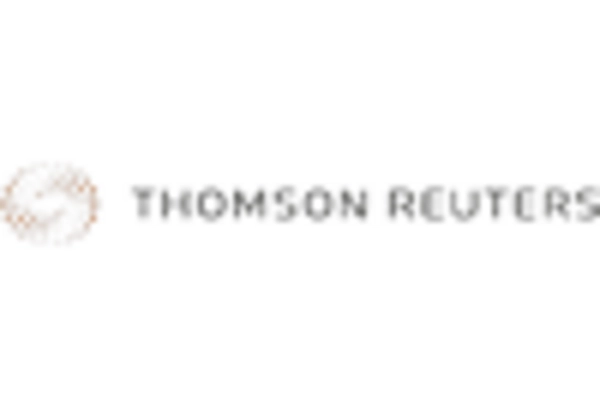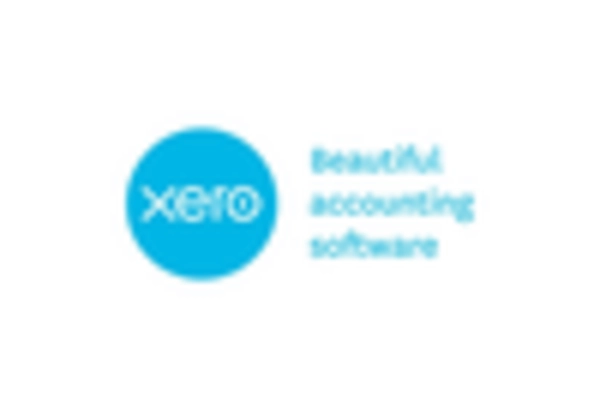Growing Focus on Data Security
The tax accounting-software market is increasingly prioritizing data security as businesses become more aware of the risks associated with data breaches. With sensitive financial information at stake, companies are seeking software solutions that offer robust security features. The implementation of stringent data protection regulations, such as the General Data Protection Regulation (GDPR), has heightened the need for secure tax accounting solutions. As of 2025, it is reported that approximately 65% of UK businesses consider data security a critical factor when selecting tax accounting software. This focus on security is likely to drive demand for software that not only complies with regulations but also provides advanced security measures.
Regulatory Compliance Pressure
The tax accounting-software market is experiencing heightened pressure due to evolving regulatory frameworks in the UK. Businesses are increasingly required to comply with complex tax regulations, which necessitates the adoption of sophisticated software solutions. The HM Revenue and Customs (HMRC) has implemented initiatives aimed at improving tax compliance, which has led to a surge in demand for software that can automate tax calculations and reporting. As of 2025, it is estimated that approximately 70% of UK businesses are utilizing some form of tax accounting software to ensure compliance, reflecting a significant shift towards digital solutions. This trend indicates that the tax accounting-software market is likely to continue expanding as companies seek to mitigate risks associated with non-compliance.
Increased Demand for Automation
The tax accounting-software market is witnessing a robust demand for automation tools that streamline tax processes. As businesses strive to enhance operational efficiency, the integration of automated solutions has become paramount. Automation reduces the time spent on manual data entry and minimizes errors, which is particularly crucial in the context of tax reporting. Recent data suggests that around 60% of UK firms have adopted automated tax solutions, indicating a clear trend towards efficiency. This growing preference for automation is likely to drive innovation within the tax accounting-software market, as providers develop more advanced features to meet the needs of their clients.
Rising Complexity of Tax Regulations
The tax accounting-software market is being shaped by the increasing complexity of tax regulations in the UK. As tax laws evolve, businesses face challenges in maintaining compliance, which drives the need for sophisticated software solutions. The introduction of new tax policies and changes in existing regulations require businesses to adapt quickly, often necessitating the use of advanced tax accounting software. Recent estimates indicate that around 80% of UK businesses find navigating tax regulations challenging, underscoring the importance of reliable software. This complexity is likely to fuel growth in the tax accounting-software market as companies seek tools that can simplify compliance and reporting processes.
Shift Towards Digital Transformation
The tax accounting-software market is significantly influenced by the broader trend of digital transformation across industries. Companies are increasingly recognizing the value of digital tools in enhancing their financial management capabilities. The UK government has been promoting digital tax initiatives, encouraging businesses to transition from traditional methods to digital solutions. As of November 2025, it is estimated that over 75% of UK businesses are in various stages of adopting digital tax solutions, which is expected to propel the growth of the tax accounting-software market. This shift not only improves accuracy but also facilitates real-time data access, enabling better decision-making.


